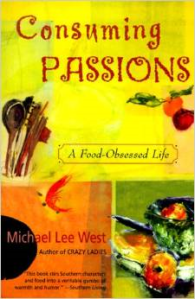I have a small confession to make. I don’t always read Southern fiction. I know, I know. As it turns out, I am a reader of many appetites. My first love will always be seeing the South portrayed in a positive light with gorgeous, fascinating characters and preferably, with a hit of historical drama thrown in. But sometimes a girl needs something else. I mean there’s a whole world of literary characters out there just waiting to set up residence in the empty rooms of our hearts. The world is a more arcane and glittering place when it’s also inhabited by fallen angels, French cooks, and star-crossed modern day lovers. As a reading treat apart from the Southern Gothic novel I’m currently working on, I picked up a copy of “The Raven Boys” by Maggie Stiefvater, the first of a paranormal and fantasy trilogy. Can you see where this is going?
It was a Southern young adult novel in disguise.
I was delighted. I also wanted to drive to Virginia and simultaneously hug and then viciously pinch the author because she fearlessly and seamlessly managed to do something that I didn’t even know could be done, and I know deep down in my petty, jealous heart that I will never be able to pull off a contemporary young adult fantasy trilogy that just drips with a Southern accent. So, Maggie Stiefvater, if you’re reading this, I want to thank you from the bottom of my heart for inspiring me with this awesome trilogy, and I also want you to know that I despise you for being a much better writer than I am.
Blue Sargent is a high school girl in Henrietta, Virginia, who lives in a large extended family of women with psychic abilities. Blue, who doesn’t possess the gift of telling fortunes or seeing spirits, has the strange ability to amplify the reading of any psychic just by being in the room. Blue is lovably independent and refreshingly embraces what makes her different from other teens instead of pining to be head cheerleader or an all-star academic. The only fly in her ointment is that everyone agrees if she kisses her true love, she will kill him.
I know what you’re thinking: That doesn’t sound Southern. Why are you wasting my time with this?
Have you visited Savannah, New Orleans, or Charleston? Part of the romanticized element of the South is our love of the supernatural, our plantations filled with ghosts of spurned lovers, our quaint infatuations with “that which cannot be explained”. You can’t visit a major Southern hub without being bombarded with major advertising regarding ghost tours and tales of the undead. The fact that Stiefvater could tackle this topic so well shows me just how big her writing chops are. Wait, there’s more.
Enter the Raven Boys, a group of self-confident–dare I say cocky?–young men who attend Aglionby, a pre-Ivy League High School for the uber-rich. Gansey, the leader of an unforgettably hodgepodge group of Aglionby boys, has an obsession with ley lines, energy roads that map the globe and the hope that Welsh king Glendower is buried on the ley line in Virginia. Legend holds that whomever wakes Glendower will be granted a favor, and Gansey intends that he should be the recipient. Brooding, harsh Ronan along with mysterious, quiet Noah, and the impoverished but determined Adam round out the masculine group.
Their paths cross with Blue in a Henrietta restaurant, and when Blue finds Gansey’s artistic, scholarly journal regarding King Glendower’s magical sleep, the novel sets off blazing on a mad quest to find and wake the ley line that houses the storied King.
Most charming in this first novel of the trilogy is Adam Parrish, the most unlikely Raven boy to ever attend Aglionby. He lives in a trailer park and works three part-time jobs while suffering an abusive father in order to try to better his future. Gansey constantly tries to make up the difference between his own posh circumstances and Adam’s meager ones, and the strife it causes in his friendship with Adam, who is desperate to claw his way out of Virginia poverty on his own terms, is almost palpable. Adam is attracted to Blue, and we see hints that Gansey may be as well. However, Adam’s background is closer to Blue’s, and for the first time, we see Blue questioning her socioeconomic circumstances as she watches the rest of the Raven boys spend money however they like. Blue and Adam are even self-conscious regarding their Henrietta accents, and numerous references are made to Adam’s inability to culture his voice when something is bothering him.
This novel is wholly believable in that it focuses most on the relationships between these coming-of-age characters instead of supernatural elements. Oh, those elements are included, but the important thing to remember is that they are judiciously sprinkled in. This is no in-your-face Twilight melodramatic tweenie novel. This a novel for the thinker. As I sit here contemplating the success of “The Raven Boys” I would be remiss not to ask that isn’t a large part of the Southern world a study in class disparities? Don’t we all try to connect the mysteries of yesterday with the circumstances of now? If you are an adult who loves young adult with fantasy elements or if you have a teen who can’t be sold on oldies but goodies like “To Kill A Mockingbird”, “The Raven Boys” is probably a good bet for some well-written, cleverly disguised contemporary Southern bliss.
In case my post was too long or convoluted: This book is excellent. As soon as I finished it, I turned to page 1 and started over.







